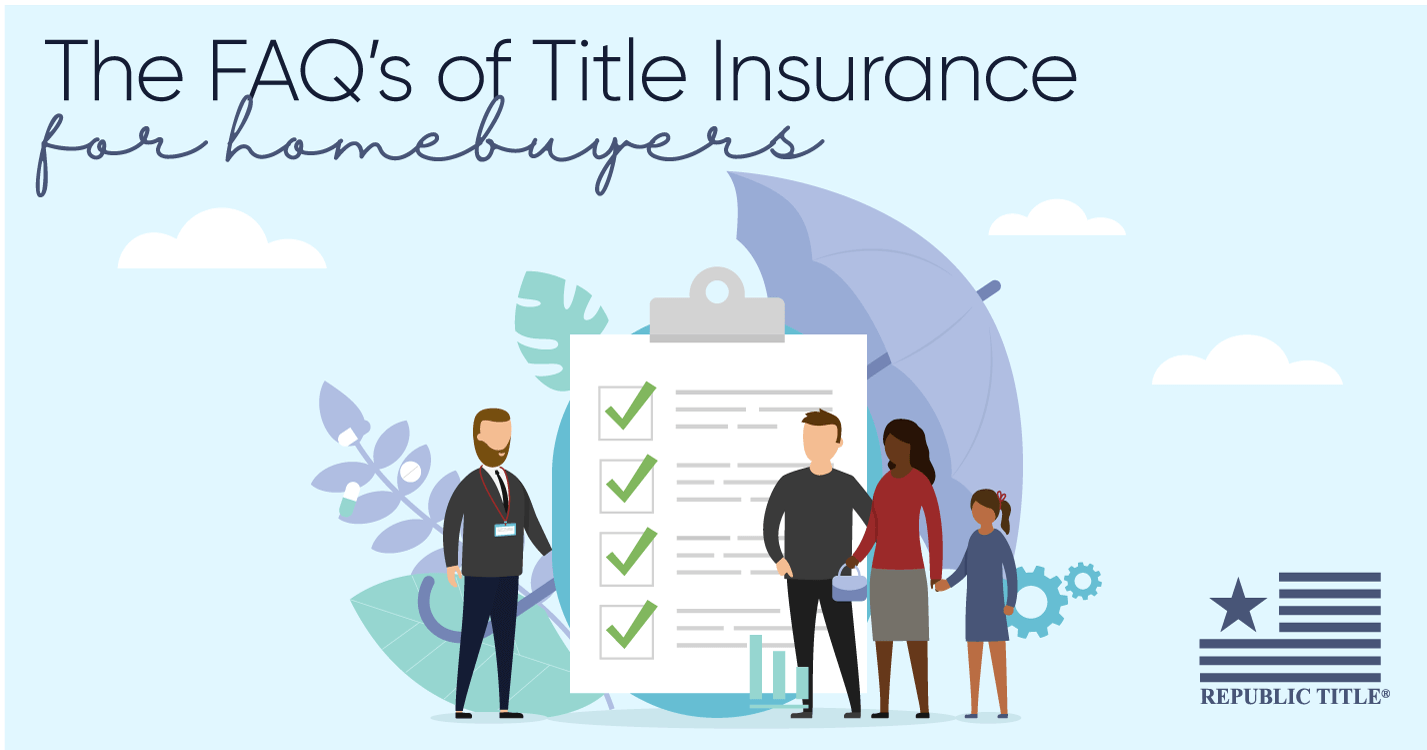
For most of us, a home is the largest investment we’ll make in our lives. To buy with confidence, get owner’s title insurance. It’s the smart way to protect your property from legal claims. To help you understand how owner’s title insurance works, here are answers to common questions.
What is title?
Title is your right to own or use your property. Title also establishes any limitations on those rights.
What is a title search?
A title search is an early step in the homebuying process to uncover issues that could limit your rights to the property. After the title search is complete, the title company can provide a title insurance commitment and then, after any requirements are met and closing occurs, a title policy.
What is title insurance?
If you’re buying a home, title insurance is a policy that protects your investment and property rights.
There are two different types of title insurance: an owner’s policy and a lender’s policy.
- An owner’s policy is the best way to protect your property rights. Either the buyer or seller may pay for this policy. Ask your title professional how it’s handled in your area.
- A lender’s policy is usually required by the lender and only protects the lender’s financial interests. The buyer typically pays for this policy, but that varies depending on geography. Ask your title professional how it’s handled in your area.
Why should I purchase owner’s title insurance?
Owner’s title insurance protects your investment in your property from certain future legal claims regarding ownership of, or liens on, your property. For a one-time fee, you and your heirs* receive coverage for as long as you own your home. The owner’s policy also covers potential legal fees and court costs for settling claims covered by your policy.
What does owner’s title insurance cover?
Sometimes undiscoverable defects can come up after the title search. Under an owner’s title insurance policy, you are protected against certain undiscovered errors in the title.
Title issues include unknown:
- Outstanding mortgages and judgments, or a lien against the property because the seller has not paid his taxes
- Pending legal action against the property that could affect you
- Unknown heir of a previous owner who is claiming ownership of the property
Unforeseeable title claims include:
- Forgery: making a false document
- For example, the seller misrepresents the identity of the person who sold the property.
- Fraud: deception to achieve unfair gain
- For example, someone steals your identity and either sells your house without your knowledge or consent, or takes out a second mortgage on the property and walks away with the money.
- Clerical error: inconsistent paperwork and historical records
- For example, an unforeseeable discrepancy in the property or fence line can cause confusion in ownership rights.
What does owner’s title insurance cost?
The one-time payment for owner’s title insurance is low relative to the value of your home. In Texas, rates are based on the sales price of the property and are set by the Texas Department of Insurance. You can calculate title insurance premium rates using the insurance calculator found on our website.
How long am I covered?
Your owner’s insurance policy lasts for as long as you or your heirs* own your property. Your life will change over time, but your protection never will.
What happens at closing?
Closing is the final step in executing the homebuying transaction and involves signing the documents that allows the creation of your new loan (if applicable), and transfer of ownership to occur. Upon completion of the closing and funding process, you get the keys to your home!
*This offers a brief description of insurance coverages, products and services and is meant for informational purposes only. Actual coverages may vary by state, company or locality. You may not be eligible for all of the insurance products, coverages or services described in this advertising. For exact terms, conditions, exclusions, and limitations, please contact a title insurance company authorized to do business in your location.
